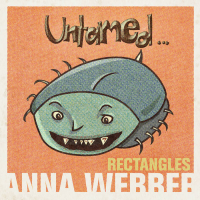Home » Jazz Articles » Album Review » Noah Haidu: Doctone
Noah Haidu: Doctone
Checking out Kirland's personal discography, we find only one recording under his own name, Kenny Kirkland (GRP, 1991). Maybe there would have been more, but he died young, in 1998, at forty-three years of age of congestive heart failure, a loss that might have made more of a public impact had he found motivation in fame.
But if his relatively low profile rendered Kirland's passing somewhat less than headline news, the artistic impact of his loss—his invaluable contributions to stratospheric jazz stars via his pianism and compositional acumen—was profound. So pianist Noah Haidu decided it was up to him to shine a light Kirland's way, via Doctone, an immersion in the late piano man's music.
After an improvisational intro of "Doctor Of Tone," just Naidu's piano and drummer Billy Hart's whispery flutterings, the examination of ten of Kenny Kirkland's finest tunes ensues, with a seamless transition to lovely "Midnight Silence," from the Kenny Kirkland album, a gradual gathering of piano trio energy, bassist Todd Coolman laying down a rubbery pulse, and Steve Wilson's tangy soprano sax entering the mix six minutes in.
And that is the plan of the day, an ardent and first-rate piano trio augmented by a rotation of top-notch saxophonists—Wilson, Gary Thomas, Jon Irabagon—tackling a batch of Kirkland's meticulously-constructed compositions with a crisp, jazzy élan. Haidu's touch is elegant, his articulation crisp. He brings percussionist Daniel Sadownick in for "Blasphemy," and also adds the subtle orchestrations of his electronic keyboard, creating an atmosphere which serves as one of the disc's highlights, along with "Dienda I" and "Dienda II." The original "Dienda" appeared on Branford Marsalis' Royal Garden Blues (Columbia, 1986), and also on Sting's All This Time (A&M,1990), making it one of Kirkland's most famous compositions. Haidu presents it here (another album highlight) as a two-part, thirteen-minute piano trio rendition, of the highest inspiration and caliber.
A stellar outing, with excellent saxophone sounds woven into a killer piano trio, perfectly arranged with reverence and verve.
Track Listing
Doctor Of Tone; Midnight Silence; Blasphemy; Steepian Faith; Dienda I; Dienda II; Mr. J.C.; The Tonality Of Atonement; Chambers Of Tain; Fushia; Chance.
Personnel
Additional Instrumentation
Steve Wilson: alto saxophone (9), soprano saxophone (2, 4, 9); Gary Thomas: tenor saxophone (7, 10); Jon Irabagon: tenor saxophone (3), soprano saxophone (10); Dan Sadownicki: percussion (3).
Album information
Title: Doctone | Year Released: 2020 | Record Label: Sunnyside Records
Tags
PREVIOUS / NEXT
Support All About Jazz
 All About Jazz has been a pillar of jazz since 1995, championing it as an art form and, more importantly, supporting the musicians who make it. Our enduring commitment has made "AAJ" one of the most culturally important websites of its kind, read by hundreds of thousands of fans, musicians and industry figures every month.
All About Jazz has been a pillar of jazz since 1995, championing it as an art form and, more importantly, supporting the musicians who make it. Our enduring commitment has made "AAJ" one of the most culturally important websites of its kind, read by hundreds of thousands of fans, musicians and industry figures every month.
























